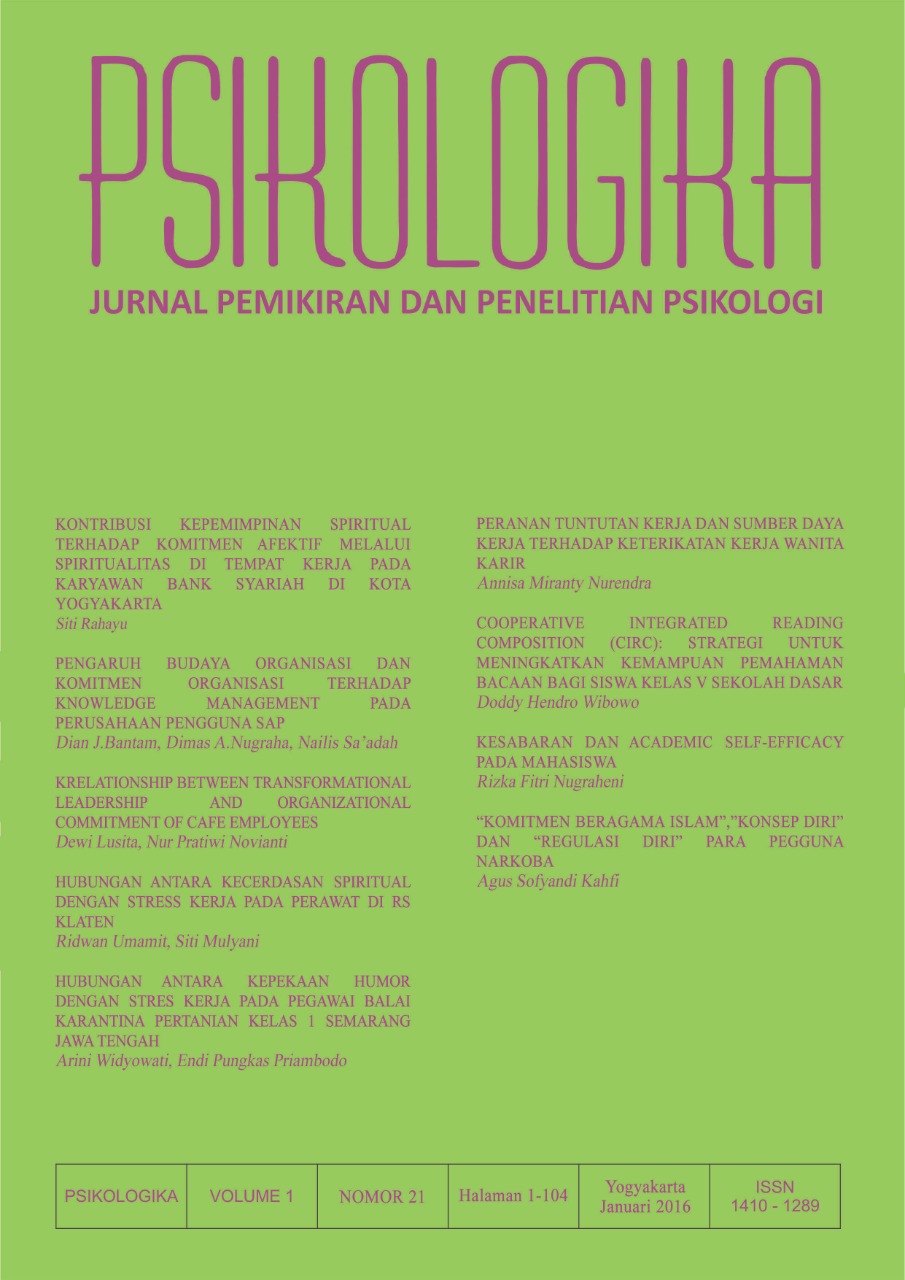Main Article Content
Abstract
This study was aimed to determine the contribution of spiritual leadership toward affective commitment through the mediating of spirituality at work. Participants were 73 (N=73) employee of Syariah Bank in Yogyakarta. Cluster random sampling is used as the sampling technique. Instrument of data collection in this study is using a scale of spiritual leadership, a scale of affective commitment and a scale of spirituality at work. The method of data analysis using a path analysis developed from regression analysis. The result of path analysis indicate that the indirect effect was significant (p2 0.226 x p3 0.772 = 0.175) with significance level p=0.000 (p<0.05), and direct effect of 0.553 with significance level p=0.000 (p<0.05). Therefore total effect is direct effect that is added to indirect effect of 0.175 + 0.553 = 0.728 (72.8%) with significance level p=0.000 (p<0.05). This means that hypotheses was accepted, there is influence spiritual leadership toward affective commitment through spirituality at work on employee syariah bank, in which the higher spiritual leadership exist, than will improve affective commitment through spirituality at work that also higher. Furthermore there are 27.2% of the affective commitment are affected by another variable besides spiritual leadership and spirituality at work.
Â
Keywords: Affective Commitment, Spiritual Leadership, Spirituality at work, Path Analysis.
Article Details
Authors who publish with this journal agree to the following terms:
- Authors retain copyright and grant the journal right of first publication with the work simultaneously licensed under a Creative Commons Attribution-ShareAlike 4.0 International License that allows others to share the work with an acknowledgment of the work's authorship and initial publication in this journal.
- Authors are able to enter into separate, additional contractual arrangements for the non-exclusive distribution of the journal's published version of the work (e.g., post it to an institutional repository or publish it in a book), with an acknowledgment of its initial publication in this journal.
- Authors are permitted and encouraged to post their work online (e.g., in institutional repositories or on their website) prior to and during the submission process, as it can lead to productive exchanges, as well as earlier and greater citation of published work (See The Effect of Open Access).




